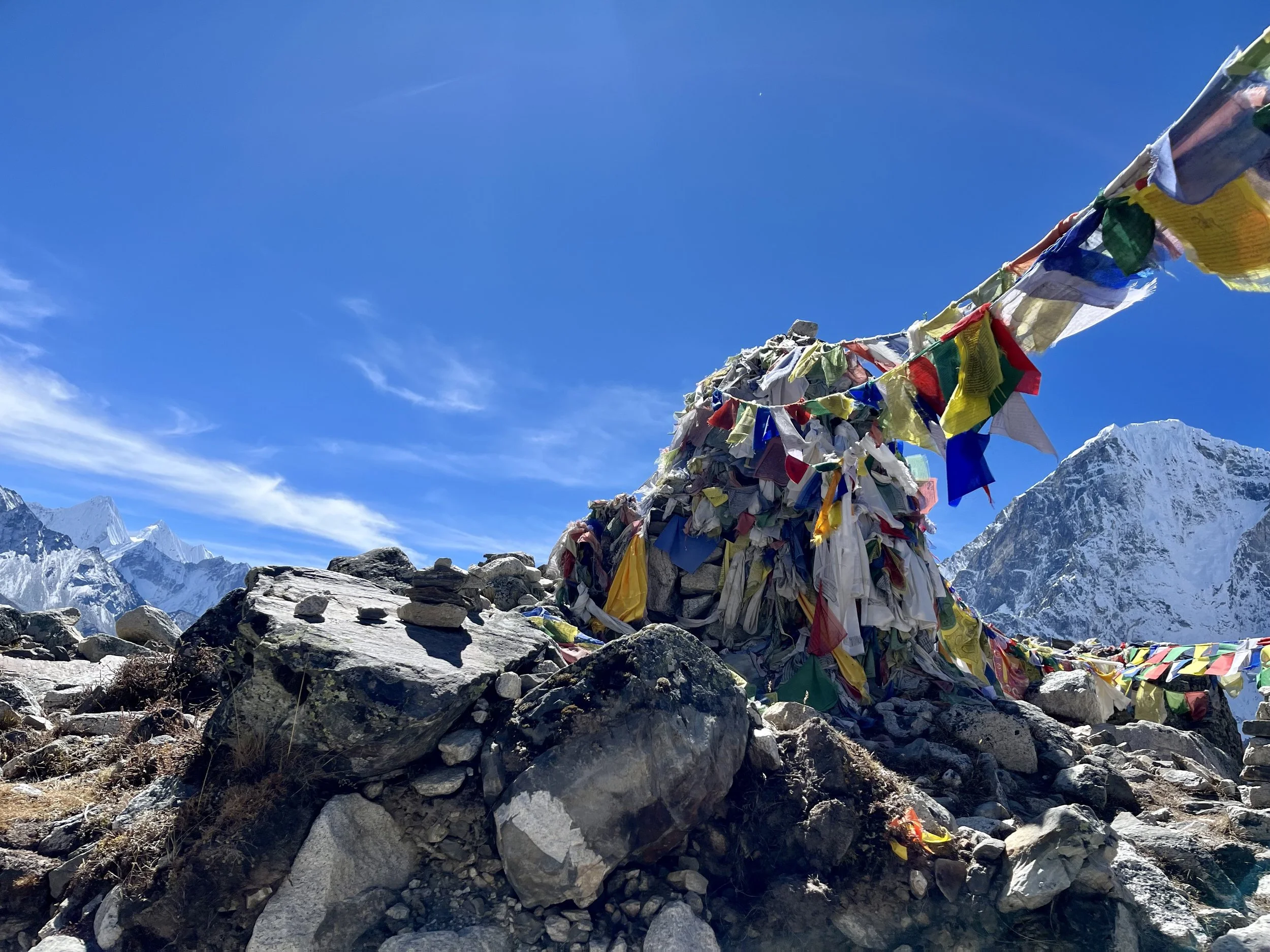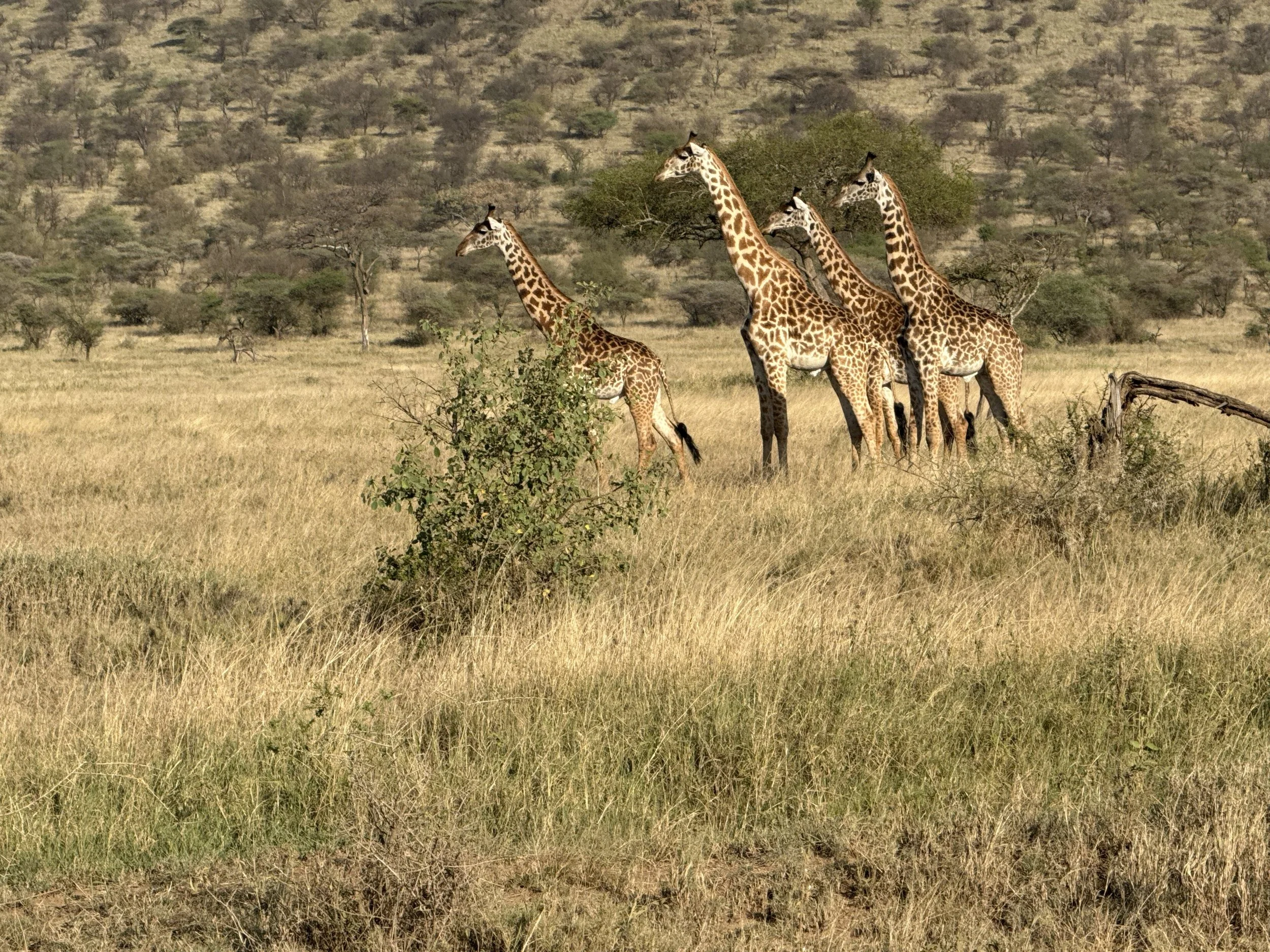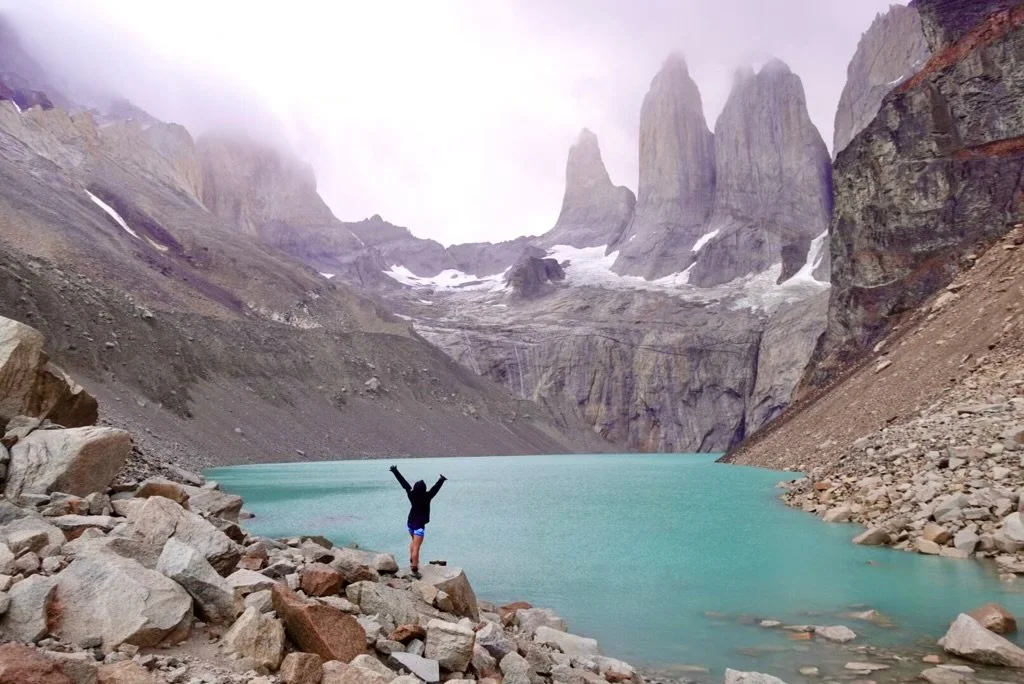Trek of a Lifetime!
12-Day Nepal - EBC Trek
Journey to the foot of the world’s highest mountain on the legendary Everest Base Camp Trek. This adventure takes you deep into the heart of the Himalayas, where you’ll trek through Sherpa villages, cross suspension bridges draped with prayer flags, and climb into the thin air of the Khumbu Valley. Each day reveals new vistas of towering peaks—Ama Dablam, Lhotse, and finally Everest itself. The trek is both a physical challenge and a cultural immersion, ending with the unforgettable moment of standing at the base of Everest, surrounded by the giants of the Himalayas.
Exploration, culture, and really big mountains!
A cultural experience of a lifetime!
Includes: Cabin lodging, heliocopter flight, all meals/snacks, temple entrance fees.
Ages
Best for adults or very active children.
Dates
May 17 — Sep 31
Location
Manakamana Marg, Kathmandu 44600, Nepal
Some things to expect on the journey
Journey to the foot of the world’s highest mountain on the legendary Everest Base Camp Trek. This adventure takes you deep into the heart of the Himalayas, where you’ll trek through Sherpa villages, cross suspension bridges draped with prayer flags, and climb into the thin air of the Khumbu Valley. Each day reveals new vistas of towering peaks—Ama Dablam, Lhotse, and finally Everest itself. The trek is both a physical challenge and a cultural immersion, ending with the unforgettable moment of standing at the base of Everest, surrounded by the giants of the Himalayas.
Where big fun begins…
Fly into the Kathmandu Airport. From there we will take a helocopter to Lukla and begin the trek to EBC.
❊ FAQs
You’ve got questions,
we’ve got answers
-
2 nights before trek and 1 night after trek hotel in ktm with b/B plan.
All ground transportation as per itinerary.
Ktm sightseeing entry fee and city guide for sightseeing
KTM-LUKLA-KTM helicopter flight.
Trekking permit and Sagarmatha national park fee
Monastery entry fee in Khumbu valley.
1 trekking guide salary and their own insurance.
2 members 1 porters’ salary and their own insurance.
3 meals during the trek breakfast, lunch and dinner.
All government taxes and agency service charges
-
international roundtrip airfare to and from Kathmandu
Visa fee for Nepal
Personal travel /medical/cancellation/rescue insurance
Personal trekking gear, personal first aid and medicine.
Personal communications (Satellite phone, phone, fax, email)
Personal expenses (phone calls, laundry, bar bills, battery recharge, bottled water, heater, etc.)
If any issue arriving in ktm before the trip ktm hotel pay by self.
Marathon registration. If you stay at EBC contact the marathon group.
During the trekking any issue if trip cancellation the money will be not refundable.
Any rescue costs or costs of early departure from the expedition
Tipping for Guide & staff
-
Travel Insurance for the EBC Trek
For the Everest Base Camp trek, comprehensive travel insurance is strongly recommended and often required. Because the trek reaches high altitude and takes you into remote areas, it’s important to choose a policy that specifically covers:
High-altitude trekking (above 5,000 meters / 16,400 feet). Many standard policies exclude this unless you add it on.
Emergency evacuation by helicopter. This is critical in case of altitude sickness or medical emergencies, since helicopters are the only way out from the higher regions.
Trip cancellation or interruption in case your plans change due to illness, weather delays, or unforeseen events.
Medical expenses abroad including hospital stays in Nepal.
It’s best for clients to purchase their policy before leaving home, as coverage often must be arranged prior to travel.
-
Safety Measures on the Everest Base Camp Trek
Experienced Guides & Support Staff
Trekkers are accompanied by professional, trained guides who are familiar with the route, the terrain, and altitude-related challenges. Porters carry gear, ensuring trekkers can move more comfortably and safely.Acclimatization Schedule
The itinerary is designed with gradual altitude gain and planned acclimatization days to reduce the risk of altitude sickness.Health Monitoring
Guides are trained in first aid and carry basic medical kits. Many trekking teams also check oxygen saturation levels regularly to monitor acclimatization.Emergency Evacuation
In the event of illness or injury, helicopter evacuation is available from villages along the trail. This is why travel insurance with helicopter coverage is required.Communication Systems
Satellite phones and/or mobile coverage are available in most villages, so guides can coordinate logistics or emergency response if needed.Lodges & Infrastructure
The Everest region has well-established tea houses, lodges, and medical posts, including the Himalayan Rescue Association clinics at Pheriche and Manang, staffed during trekking seasons.Government & Local Support
The trail is one of the most popular in Nepal, so there is steady traffic of other trekkers, porters, and yaks — you’re rarely isolated, and help is often nearby.
-
Preparing for Bad Weather on the EBC Trek
Weather in the Everest region is unpredictable, even in the best trekking seasons. While most days bring clear skies and stunning views, trekkers should be prepared for conditions that may include:
Flight Delays or Cancellations
The flight between Kathmandu and Lukla (the trek’s starting point) is weather-dependent. Delays are common, sometimes lasting a full day or more. Clients should build flexibility into their schedules and avoid tight international flight connections.Cold Temperatures
Higher elevations can bring freezing nights and occasional snowfall, even in peak trekking months. A warm sleeping bag, insulated jacket, gloves, and layers are essential.Rain or Snow
Sudden rain showers or snowstorms can occur. Waterproof outerwear, pack covers, and quick-drying clothing are important.Trail Conditions
Trails may become muddy, icy, or slippery. Trekking poles and good-quality boots with traction help maintain safety.Visibility
Fog or heavy clouds can obscure mountain views temporarily. Patience and flexibility are part of the Himalayan experience.Schedule Adjustments
Guides may adjust daily trekking plans or routes for safety if conditions require it. Flexibility and trust in your guide team are key.
❊Additional Adventures
More to explore
Looking for a different type of adventure? We have several other offerings!
Tanzania - Serengeti Safari
Patagonia - Torres del Paine






